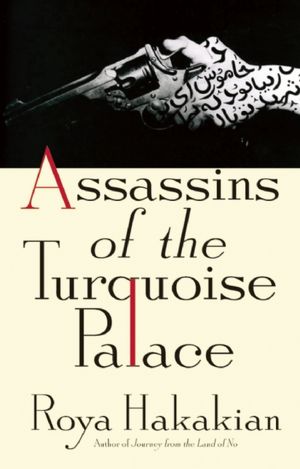
by Tara Bognar
International Women’s Day, Iranian Women’s Rights
 This morning I attended a panel discussion about the status of the struggle for women’s rights in Iran. Sponsored by the organization Iran 180 and scheduled in honor of International Women’s Day, the panel included Roya Hakakian, a writer, poet, and producer based in New York, Solmaz Sharif, a dissident journalist and poet, and Arash Abadpour, a (male) computer scientist and popular Persian and English language blogger.
This morning I attended a panel discussion about the status of the struggle for women’s rights in Iran. Sponsored by the organization Iran 180 and scheduled in honor of International Women’s Day, the panel included Roya Hakakian, a writer, poet, and producer based in New York, Solmaz Sharif, a dissident journalist and poet, and Arash Abadpour, a (male) computer scientist and popular Persian and English language blogger.
Iran is an important topic in Jewish news media, even more so recently, with speculation about its development of nuclear capabilities and discussion of appropriate American and Israeli responses. But spending Purim morning thinking specifically about the status of women in Esther and Vashti’s ancient home seemed appropriate. The panel’s moderator, New York Times reporter Anne Barnard, successfully guided discussion towards intra-Iran human rights issues but unfortunately had less success keeping the focus on women.
Beyond an acknowledgment of the courage of women dissidents in Iran in general and specific recognition of Nazanin Khosravani who just two days ago began a six year prison sentence after refusing to write a letter admitting fault and requesting pardon for “collusion” and “propaganda” against the regime, the panelists’ discussion was quite general and non-gender specific.
From a Jewish perspective (and an International Women’s Day perspective) that is too bad. The struggle of women in the juxtaposition of extremist theocratic suppression of women’s rights, everyday sexism, and a fairly liberal and educated, but struggling, middle class could prove all too relevant to those concerned about the situation in Israel.
However, there was a fascinating interchange on the issues of diaspora, authenticity and the regime’s attempts to undermine the construction of a shared national identity. Abadpour noted that as a Canada-based blogger, he tries hard to use a kind of ‘pure’ Farsi, uninflected by English grammar and vocabulary, in order to avoid being perceived as “diaspora” and having his voice marginalized as inauthentic and irrelevant to Iranians living in Iran. Hakakin pushed back. She has been in the United States since 1984 and no longer sees herself, or expects to be seen, as anything but diaspora – and she argues that the marginalization of diaspora voices is a deliberate tactic of the regime, another way of purposely creating and encouraging schisms among dissidents and the Iranian community as a whole. Abadpour conceded that the diaspora concept cuts Iranian society in two, with each group thinking the other is the diaspora, and that this is a major challenge for organizers: “We are all one people, we should all be able to identify with each other and with being Iranian. At the end of the day, we have common interests.” Sharif affirmed that the Islamic regime’s greatest fear is the unification of the people.
I found this particular thread of the conversation extremely relevant to modern Judaism. Unlike in Iran, most of the Jewish community has historically identified as a diaspora community, idealizing Israel from afar. Now that a significant Jewish population and state in Israel is a reality, some enthusiastically embrace and even romanticize diaspora Judaism, while others consider it an unfortunate or even shameful alternative to living in “The Land.”
What does it mean when the Israeli government sponsors ads disparaging American Jewish practice and discouraging Israelis from marrying out? What does it mean when American Jews insist that they have no relation to the Jewish state? What difference does it make that Israel is a democracy in which American Jews (mostly) do not vote? Does “not in my/our name” increase or diminish the division between diaspora and Israeli Jews? Is there or can there be a meaningful shared diaspora identity between the economically powerful and demographically significant American Jewish community and much smaller and sometimes much poorer Jewish communities throughout the world?
What does it mean that the identity that Abadpour is embracing and endorsing is, in a time when many (especially anti- and non-Zionist Jews) aspire to post-nationalism, nationalistic? What’s more, a national identity constructed and purposefully imposed upon the historic indigenous Zoroastrian community, among whom some of the few who did not seek refuge outside the country (many aided by the Hebrew Immigrant Aid Society) still identify as Persian rather than Iranian?
For both Jews and Iranians (and of course the intersection thereof), is it possible to harness the power of the discourse of “we are one people,” without sacrificing acknowledgement of and respect for the many kinds of diversity represented within the “one people”?
I’m thankful to Iran 180 for organizing the panel, and especially thankful for the opportunity, on Purim of all days, to think about Iran not in terms of weapons and deterrence and war, and not in terms of leaders and kings and power struggles and slaughters, but in terms of individuals and a people with whom I, as a Jewish woman about as far removed from Esther as can be (and happily so), share important cultural and human struggles.